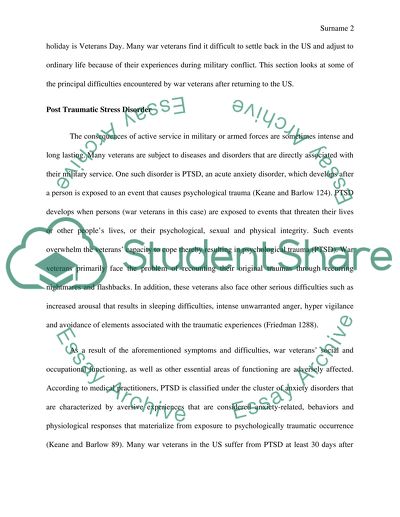Cite this document
(“PTSD in War Veterans Research Paper Example | Topics and Well Written Essays - 1500 words”, n.d.)
Retrieved from https://studentshare.org/english/1450861-ptsd-in-war-veterans
Retrieved from https://studentshare.org/english/1450861-ptsd-in-war-veterans
(PTSD in War Veterans Research Paper Example | Topics and Well Written Essays - 1500 Words)
https://studentshare.org/english/1450861-ptsd-in-war-veterans.
https://studentshare.org/english/1450861-ptsd-in-war-veterans.
“PTSD in War Veterans Research Paper Example | Topics and Well Written Essays - 1500 Words”, n.d. https://studentshare.org/english/1450861-ptsd-in-war-veterans.


